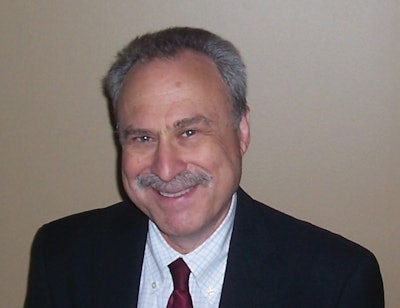
Takeaways:
- Customize programs to fit your supply chain needs
- Programs can be done online, on campus or at your facility
- Utilize cutting-edge research
There are plenty of ways for business majors and industry newcomers to continue their education, whether on-line or in the classroom. But what’s a seasoned or moderately experienced supply chain professional to do?
Colleges are developing specialized programs for just that purpose as firms look to streamline their supply chains to keep costs down while minimizing risk. One of the many schools catering to that need is the W. P. Carey School of Business at Arizona State University.
The Center runs programs from MBA in Supply Chain Management down to non-credit programs and custom programs that could be as little as three days.
“Corporate clients want to provide an MBA education, but they approach it in a strategic way,” says Dawn Feldman, Executive Director of the Center. “They do it as a cohort—shared experiences, shared language. A company that wants it will enroll 15-20 people—what they call their next-generation leaders—but we’ve had up to 60.”
The custom programs can be delivered on ASU’s Tempe campus or at company locations worldwide. It also can be done online and are taught by members of the W. P. Carey faculty.
“Think about a company with locations around the world and a purchasing team at each,” says Hector Zelaya, Director of the Center. “The custom corporate MBA gives them a common language and a common framework. From the company’s perspective, it’s more than a development tool. It’s also a retention tool and an attraction tool. They’re careful on who they put in it. Those that aren’t prepared for the MBA, but can use the certificate supply chain program.”
Done on line, the program can accommodate students in Asia, Europe or anywhere else with an internet connection. “It’s asynchronous on-line,” Feldman says. “In addition to the module, there are discussion boards, so the focus is on engagement, but they can do it on their own time.”
The custom program curriculum is the same as the MBA program, but discussions and case studies can focus on that company and its challenges. It’s entirely online, Feldman says. “We’ve had online for over 10 years. A company can take people that are geographically dispersed and go through the course without the expense of travel. Some may have a cohort come to Tempe or have a faculty member go to their site.
“A company has a specific problem,” she adds. “So we set up a focused initiative using W. P. Carey. They may be looking at strategic development, tactics or operations. When they choose to invest in custom, the faculty is giving their people the tools to approach their problems. We’re not trainers, but transfers of knowledge and the tools they need so they can solve problems themselves. They take online supply chain management processes.”
Unlike the very structured MBA or Certificate in Supply Chain Management, the custom course is very flexible. “Once we sit down with the company that wants a custom program, we’ll put something together that lets them accomplish it,” Feldman explains. “It really fits the company’s specific need. Let them decide what they need. [The program] can be designed and delivered for [their] culture. They really define their learning objective. Our faculty is designed to deliver that so it doesn’t just fit in a box. We do a needs assessment. ‘What’s your desired end goal?’ It’s a dialogue and a partnership.”
It can cover the entire breadth of supply chain, Zelaya adds. A company might say they want to take a deep dive into procurement only, or logistics only.
Research
Supply chain professionals also can take advantage of three research programs at W. P. Carey, which was ranked fifth among all graduate school supply chain programs, and tied for second in undergraduate programs in the latest Gartner survey. CAPS Research, the Center for Supply Networks (CSN) and the Health Sector Supply Chain Research Consortium (HSRC-ASU).
Celebrating its 25th anniversary this year, CAPS Research was formed as a joint venture between the Institute for Supply Management (ISM) and ASU to conduct cutting-edge research in the field. More than 300 large, multinational firms have been corporate sponsors over the years and research has addressed such emerging trends as environmental sustainability, the impact of social networking media on supply chains, and benchmarking of Chinese companies.
All of the CAPS Research products and events are aimed at executives with strategic responsibilities for supply management. The global roundtables, best practices workshops and critical issues events allow executives to be actively engaged in best-practices sharing. It includes a number of segments: CPO Insights is an email-based communications and polling tool that is exclusively used by its CPO community. Practix Reports contain actual case studies on challenges and solutions to supply management initiatives. Benchmarking activities and focus studies provide tools to measure performance. Executive assessments are focused self-assessments that are derived from 10X Executive Assessments and Supply Leadership Model Assessments.
The mission of the Center for Supply Networks is to advance the science of supply networks and sustainability management. It focuses on studying supply networks and sustainability as complex adaptive systems. Its components include conducting supply network research, cutting-edge research in sustainable supply chains, taking the field beyond dyadic buyer-supplier relationships to triadic relationships and other network archetypes, and adopting complex adaptive systems theory as an overarching theoretical perspective.
The third program, the healthcare consortium, was founded in 2004 to bring together health sector organizations and academic researchers to conduct research on topics related to the strategic management of the health care supply chain. It functions as a boiler room for new ideas to drive excellence and innovation in the healthcare supply chain. Research is developed through collaboration with member organizations representing multiple stakeholders across the healthcare supply chain.
“CAPS is more applied, while CSN is more academic,” says John Fowler, Chair of the Supply Chain Management Department at W. P. Carey. “The healthcare consortium is leading edge. The efficiency of health care is becoming more important and industrial engineering is looking at it more closely.
“Supply chain has an important role to play. Essentially, we have close to 100 percent of what we need available right away, like replacement hips or knees, but not so much inventory that it gets obsolete or costs more to keep around.”
Pharmaceutical companies have been putting a lot of money into research and development, says Michele Pfund, assistant chair of supply chain management at Carey, and faculty director of the online MBA program. “The emerging trend now is to get more supply chain folks out there.”
Another area where further development is needed, Fowler says, is emerging as we move more to a service economy. “Supply chain over the years modified applications in the service arena, he says. “Some work has been done, but more is needed in classes. When they talk operations, it’s mostly manufacturing, so services is a key component.”

![Pros To Know 2026 [color]](https://img.sdcexec.com/mindful/acbm/workspaces/default/uploads/2025/08/prostoknow-2026-color.mduFvhpgMk.png?auto=format%2Ccompress&bg=fff&fill-color=fff&fit=fill&h=100&q=70&w=100)













